Content Advisories
Shotgun Players is equally committed to presenting challenging work and taking care of our patrons.
Theatre lets us emotionally connect to our own histories, and, by that same token, can sometimes bear a striking resemblance to the traumatic content of our lives.
Content advisories are a tool to help our audiences better prepare to engage with each play. While we have tried to cover the most common sensitivities, the lists below are not exhaustive. Some advisories are only briefly mentioned in the plays, whereas others are major themes of the work.
If you have any questions about our season’s content, we encourage you to call or email the box office. We’re happy to provide additional context. (510.841.6500, ext. 303 or boxoffice@shotgunplayers.org).
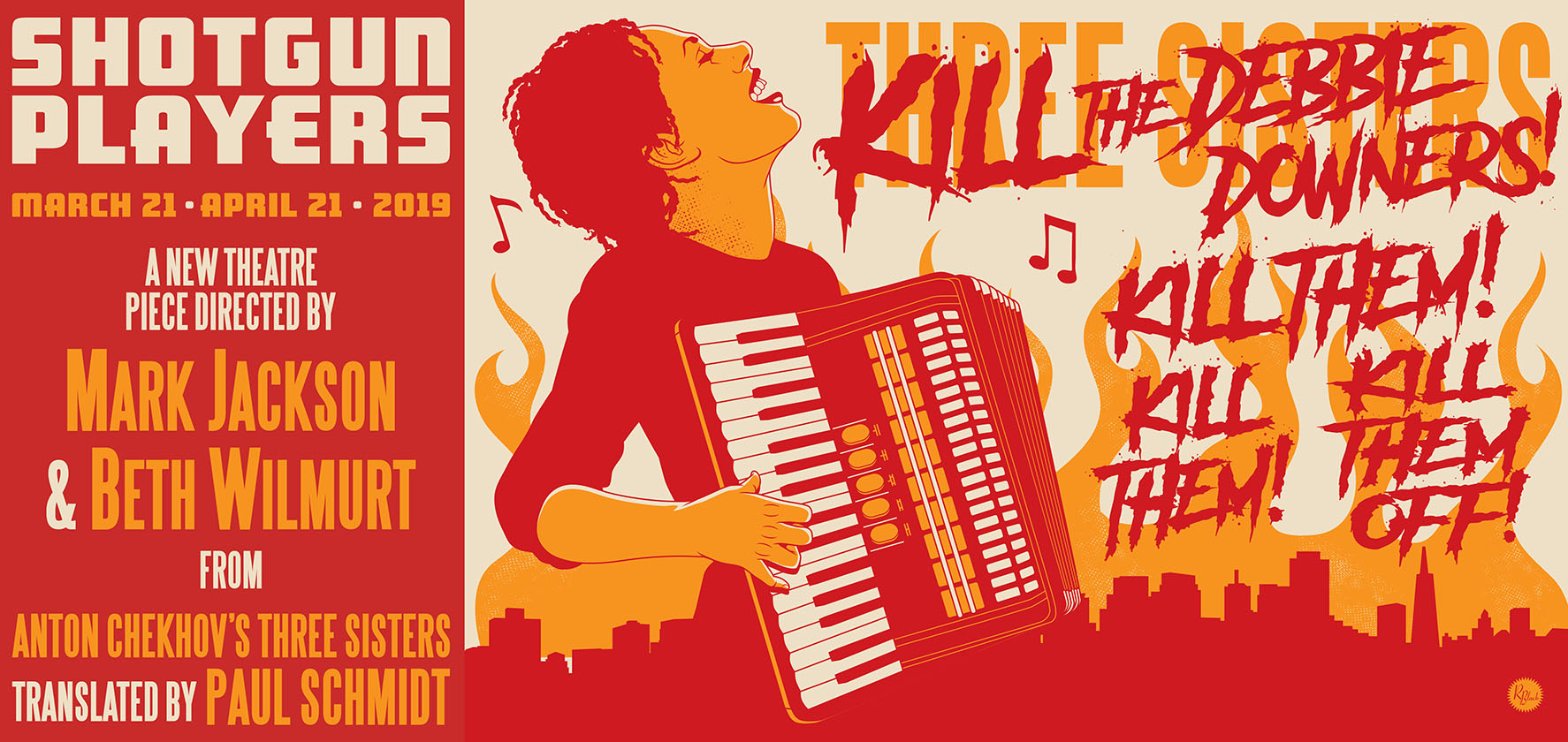
KILL THE DEBBIE DOWNERS! KILL THEM! KILL THEM! KILL THEM OFF!
KILL THE DEBBIE DOWNERS! is directly inspired by Chekhov’s Three Sisters and deconstructs the play to both highlight the continued modern relevance of its themes and also the audience/performer divide inherent in theatre.
Much of KILL THE DEBBIE DOWNERS! is expressed through poetic language, artistic abstraction, song, and dance, but there are two moments to highlight for content advisories.
In Act 1, the character Solyony goes through a comedic monologue about the difference between seeing a performance and interacting with the “real world” outside the theater. During this part, the character considers harming his hand with a knife and with a (non-firing prop) gun.
In Act 3, there is a video sequence containing footage of real-life events, including recent natural disasters and instances of racial and other violence. This video sequence in KILL THE DEBBIE DOWNERS! is a direct reference to the Act 3 fire in Three Sisters. Please see below for the full list of the video’s contents.
Advisories:
- Character considers harm to his hand with a knife and (non-firing prop) gun in a comic setting
- Play includes a brief video sequence containing footage of recent natural disasters and instances of racial and other violence, including:
- California wildfires
- The Las Vegas and Orlando shootings
- Racially charged protests in Charlottesville, VA
- Police actions in progress
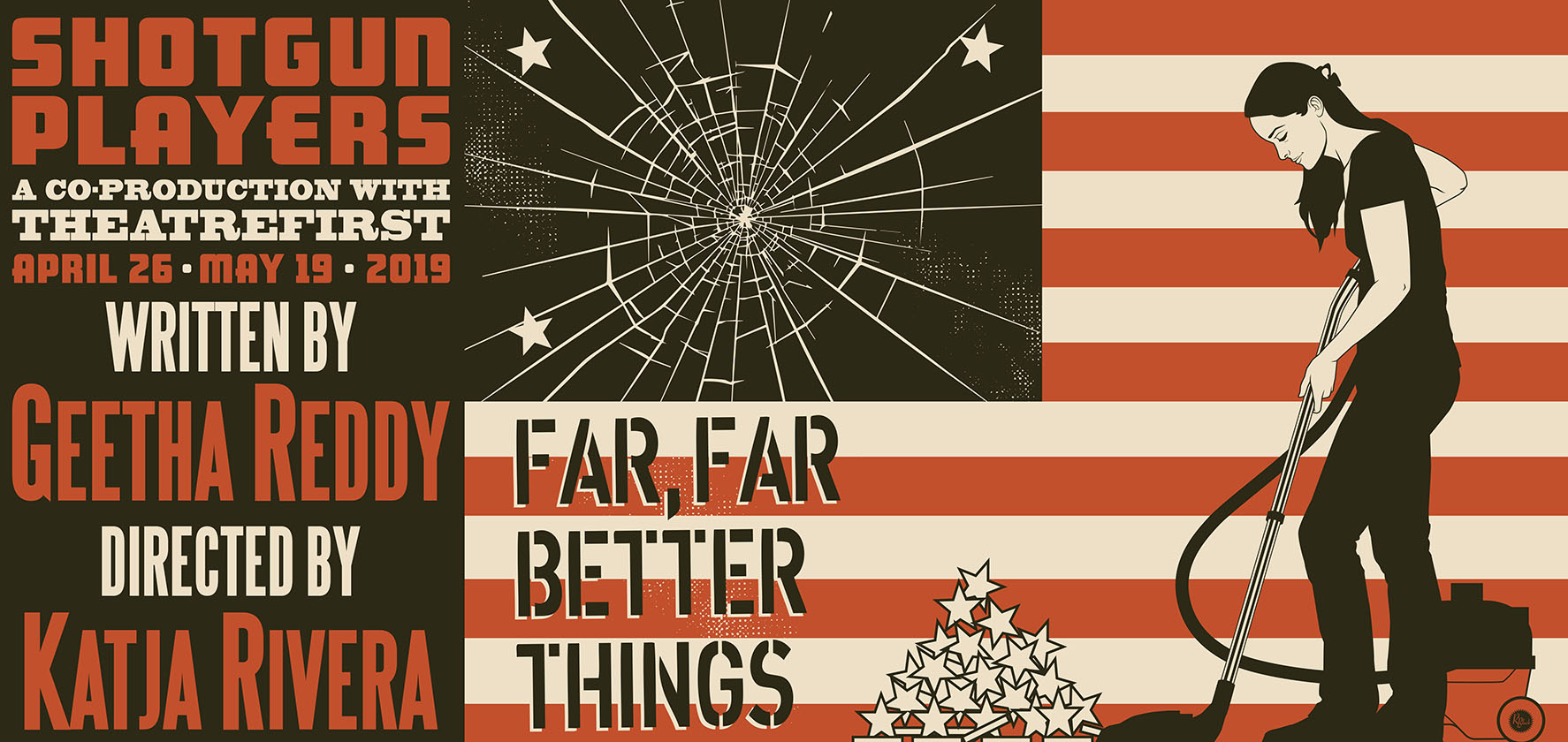
Far, Far Better Things
Inspired by Dickens’ A Tale of Two Cities, Geetha Reddy’s new play tells the story of two women—a Latina domestic worker and a young South Asian doctor—separated by class, race, and the unspoken rules of modern womanhood. See what happens when these two women strive to balance their responsibilities to their children, to themselves, and to each other.
Advisories:
- References to: sexual harassment, spousal abuse, attempted suicide, statutory rape, pregnancy, abortion, prescription drug addiction
- Descriptions of: murder by gun, child abduction
- Realistic depictions of: threatening gun violence, alcoholism
- Use of a racial slur against Latinx people
- OCD used as an offhand pejorative
- A gunshot sound effect
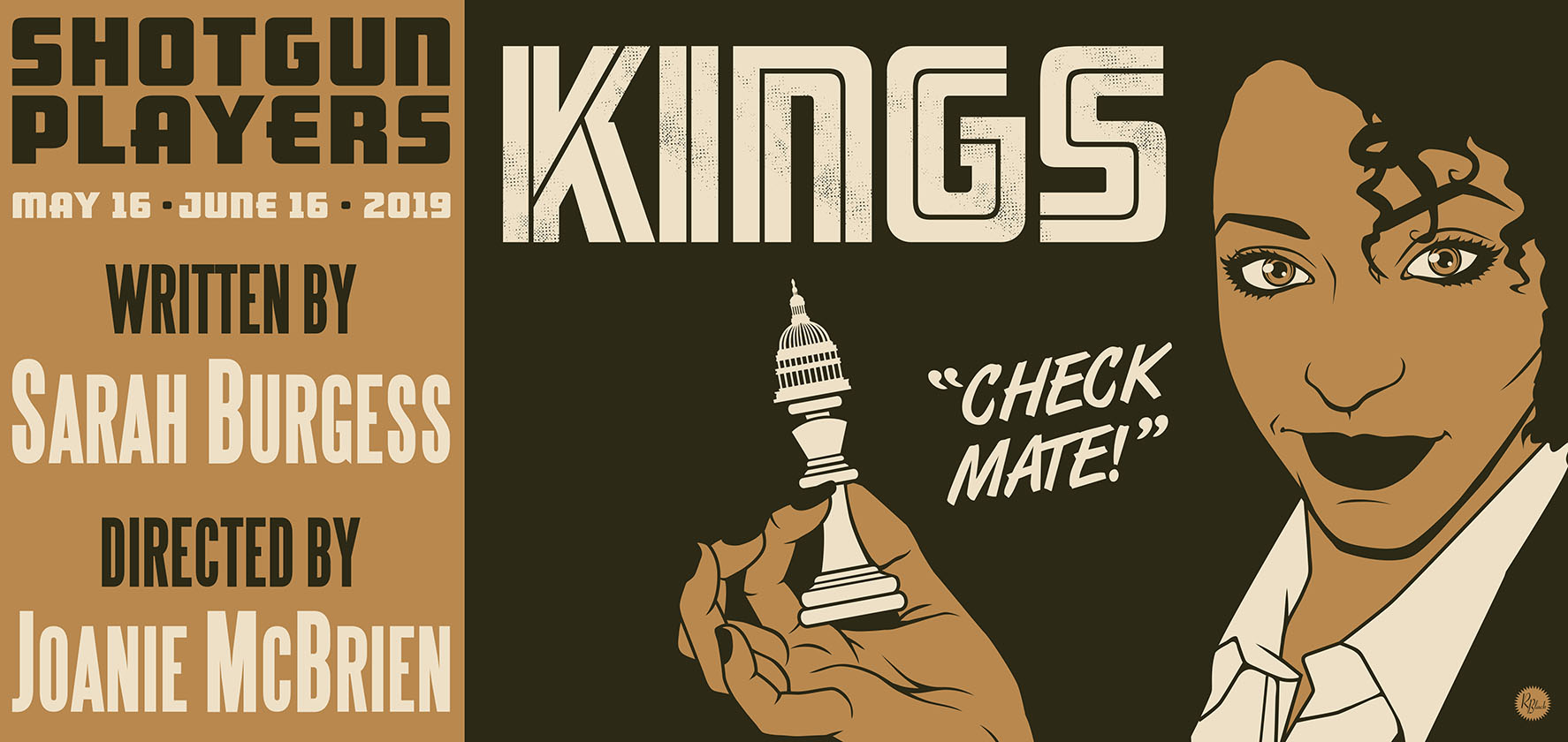
Kings
Kings is a story about a black woman who is newly elected to Congress and immediately begins questioning the corrosive power of money in politics. The play indirectly addresses microaggressions against black women and persons of color in the political sphere, not unlike the racial belittling of political “newcomers” Alexandria Ocasio-Cortez and Ilhan Omar.
Besides this, the Shotgun staff did not note any particular content advisories, except for a brief story told by one of the characters of a person who suffered physical harm as a result of an oil rig explosion.
Advisories:
- Description of: bodily harm incurred from an oil rig accident
- Play indirectly addresses microaggressions against black women in the context of the political sphere
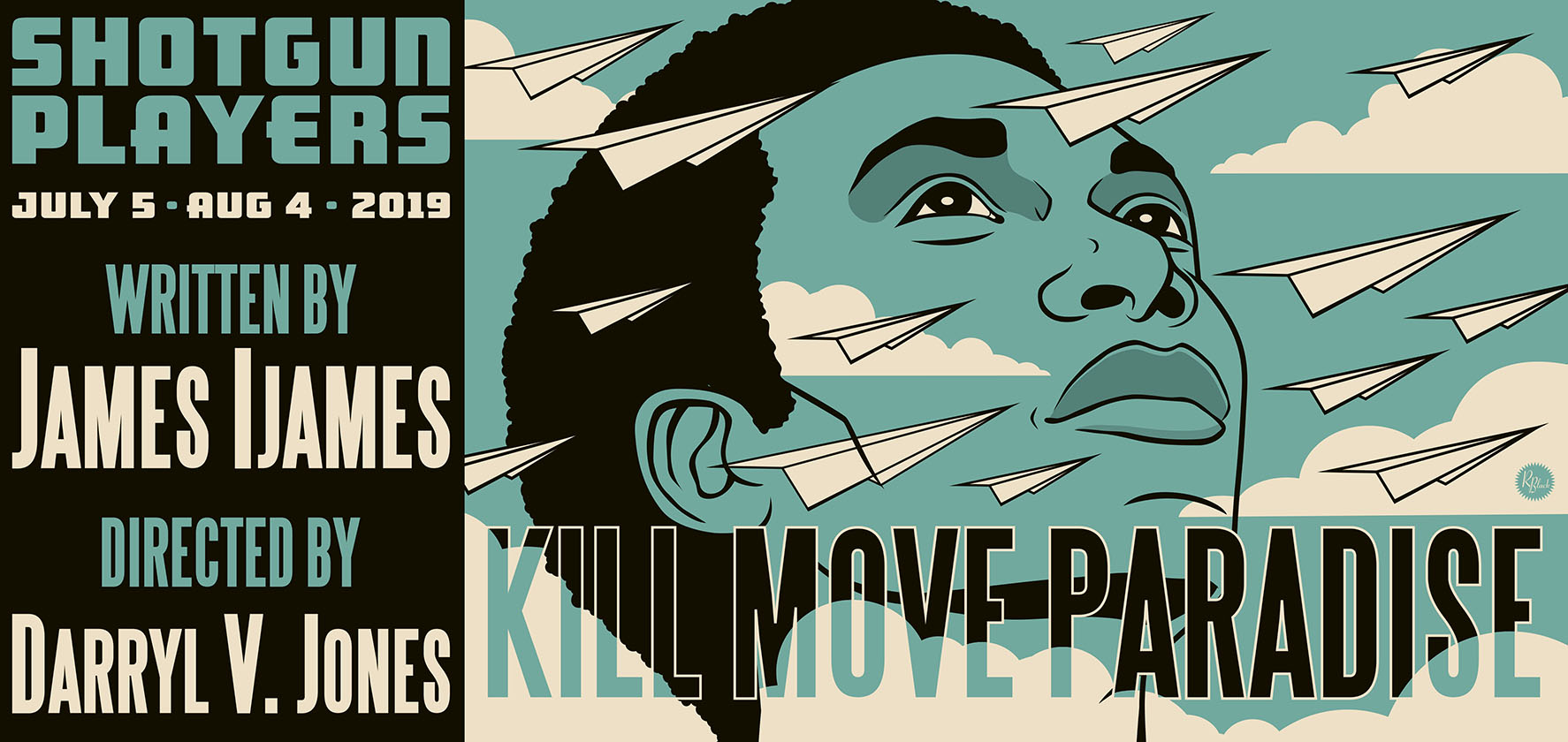
Kill Move Paradise
Kill Move Paradise centers the story of four fictional black male characters (three adults and one child) who are placed together in a liminal space, after being murdered as a result of racial violence. Though their murders are not seen onstage, the play directly addresses the psychological and emotional repercussion of being the targeted by violence and criminalizing assumptions.
Kill Move Paradise is written to highlight emotions that black male characters are not often encouraged to publicly show—like grief, vulnerability, tenderness, and fear—and asks the audience to witness these usually private moments. Not all of these emotions are quiet; Kill Move Paradise contains loud sounds including sound effects (an earthquake, a gunshot) and sounds from the actors (yelling, screaming, crying).
The characters speak in a stylized poetic language that is influenced by AAVE and includes casual use of the “N” word.
This play addresses particular acts of racial violence against black people (discussions of police brutality, racial prejudice, allusions to minstrelsy, stylized depictions of lynching and drowning). It contains a scene where a character reads a list of names of black people who have been murdered by police or as a result of racialized violence. It also portrays the three adult characters who become a “monster” representing oppression and racial violence, which visibly terrifies the child character.
Kill Move Paradise breaks the fourth wall. Characters directly address the audience, who are positioned as silently watching/observing the action onstage and recognized as being a majority white group.
Advisories:
- Stylized depictions of: black men and boys murdered as a result of racial violence (including a police shooting of a young black man); black men not breathing/appearing to be dead; black men and a teen trapped in an afterlife and being observed by a white audience
- Descriptions of: black peoples’ body parts as relics; black people and children being shot; racial prejudice; blood; and blood loss
- Use of the “N” word, a child making a joke about child sexual abuse, and other strong language
- Use of loud sounds, including earthquakes, screaming, and a gunshot
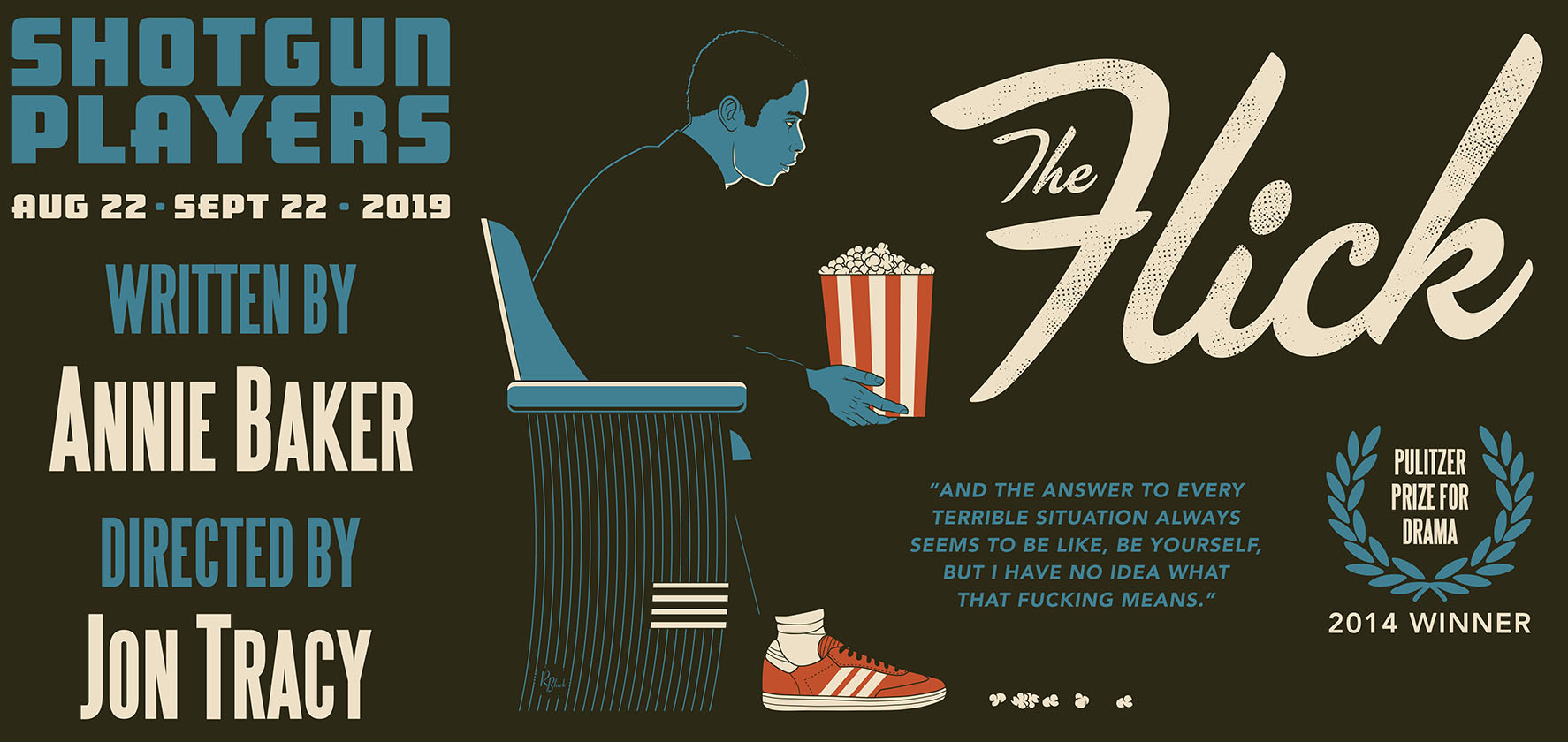
The Flick
The Flick takes place in a movie theater and examines the daily life and subtle interactions between the people who work there. The characters use naturalistic language, with all of its problematic components, including the use of pejorative words with homophobic, ableist, or racist roots, as well as other strong language.
One of the characters in The Flick is in treatment for depression and has frank discussions about mental health and suicidal thoughts.
Much of The Flick centers around the subtle ways humans connect and try (or fail) to understand each other, both platonically and romantically. To this point, The Flick has an onstage depiction of a non-consensual sex act (a handjob) between two adult characters.
Advisories:
- Reference to: sex, suicide
- Realistic depictions of: racism in the form of microaggressions; non-consensual sexual acts between adults (a handjob)
- Strong language and offhand pejorative remarks about homeless people, gay people, people with eating disorders, and people with disabilities
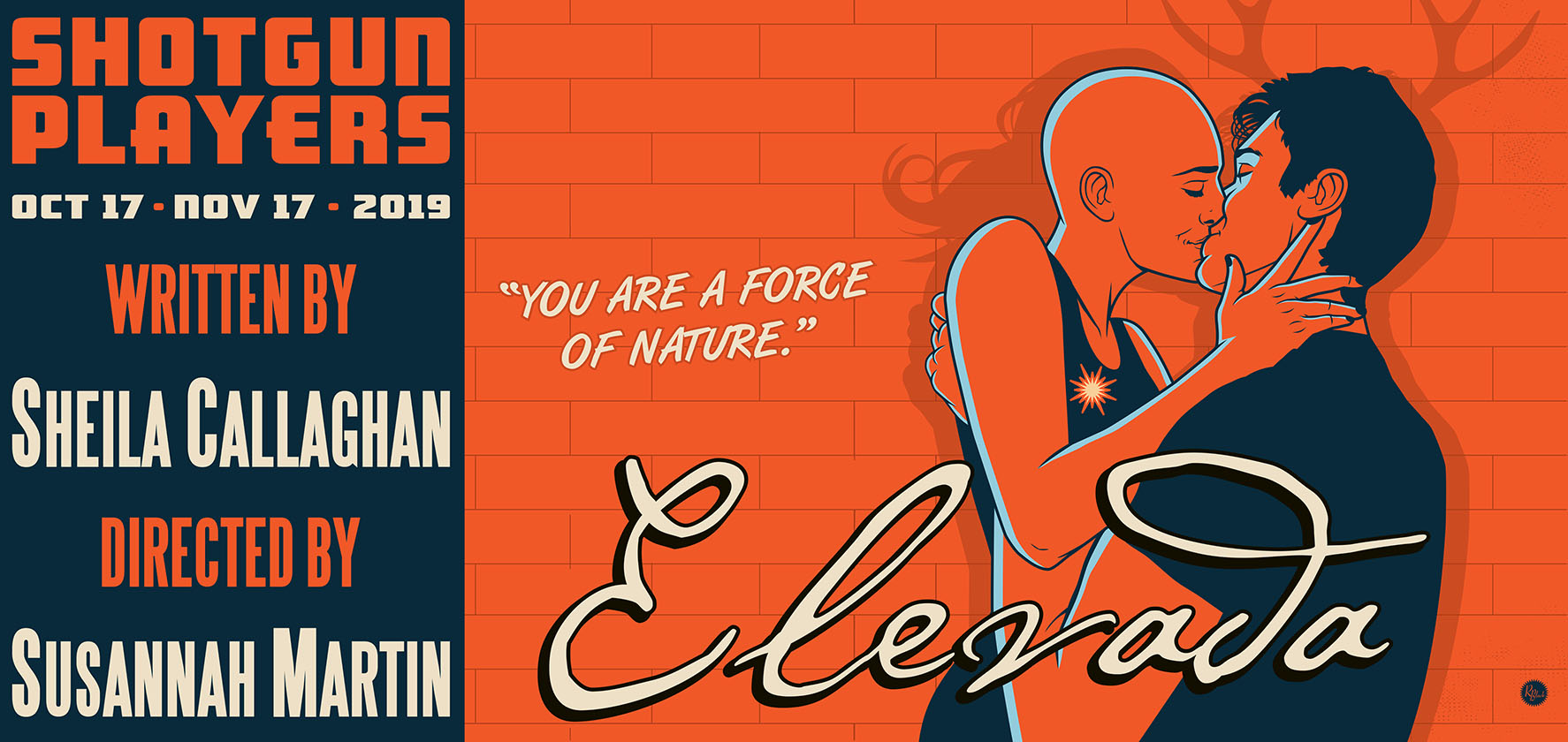
Elevada
Elevada is a hyperbolic take on the traditional romantic comedy. While often absurd, hilarious, and satirically biting, Elevada also recognizes the past traumas that all human beings carry with them and how those traumas affect our abilities to give and receive love.
In Elevada, the specific traumas alluded to are: drug addiction, alcohol abuse, childhood physical abuse, disordered eating, and suicidal thoughts. One character is actively undergoing cancer treatment and discusses the possibility of her death.
Elevada also contains strong language (in conversation, about parts of the body, and in using hurtful language against other people). For more specifics about what language is used, we recommend reading the list below.
Advisories:
- Descriptions of: death and dying; cancer and depression; drug addiction; alcohol abuse
- Reference to: suicide, childhood physical abuse
- Realistic depictions of: alcohol abuse; microaggression against women and minorities
- Strong language, misogynistic slurs, and offhand pejoratives about a Holocaust victim
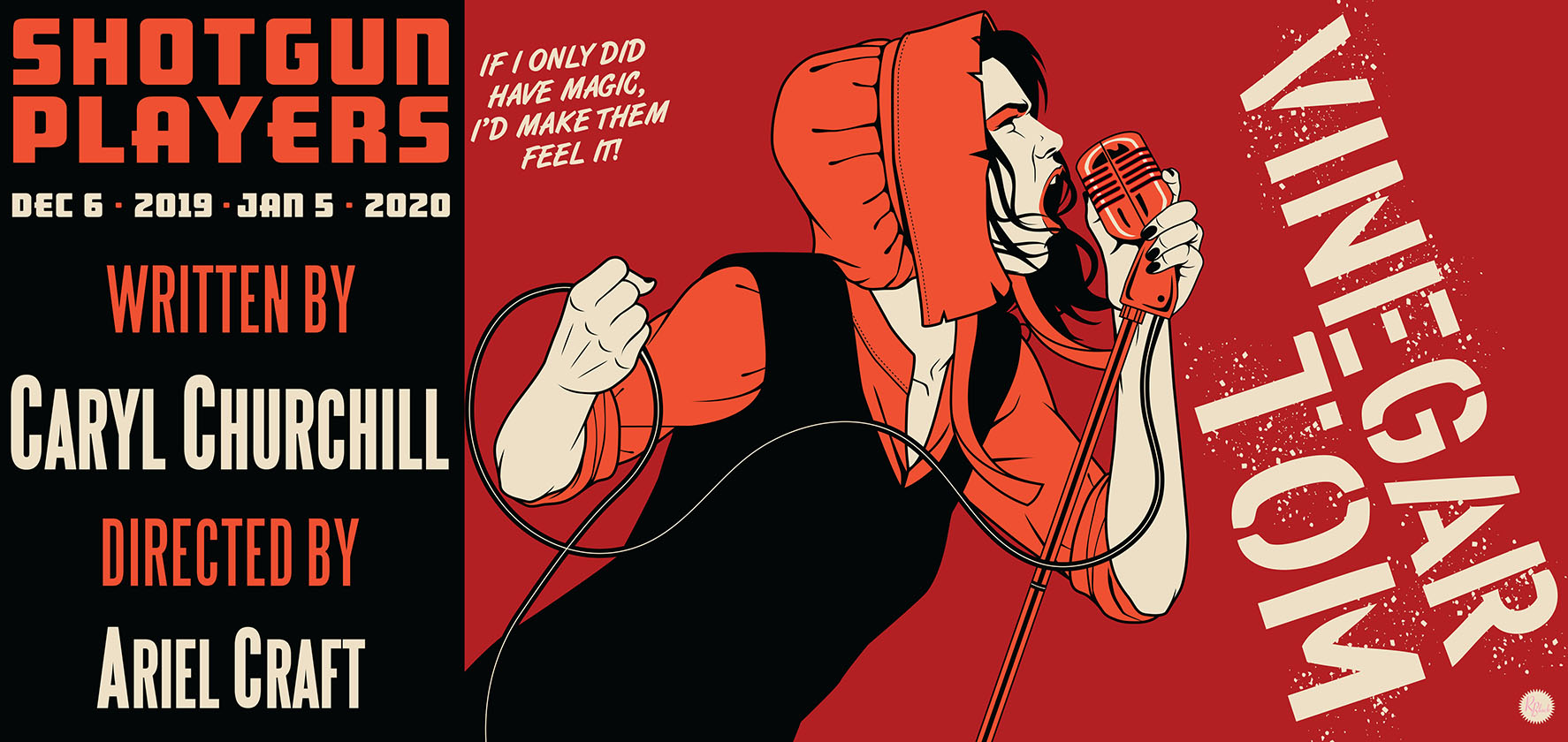
Vinegar Tom
Vinegar Tom uses the backdrop of 17th century witch hunts in America to address modern themes of misogyny, xenophobia, and female power/powerlessness.
The play contains descriptions of violence against women, both contemporary and historical (descriptions of domestic abuse, forced separation from children, being burned at the stake, and use of misogynistic slurs), as well as descriptions of sad events in a woman’s life (descriptions of miscarriage & a child’s death).
Additionally, Vinegar Tom has onstage depictions of torture/humiliation used in witch hunts (“pricking”), as well as methods of death (hanging).
Vinegar Tom brings these themes into a modern context through song, which illuminates the text and offers opportunities for satirization. One song in particular contains references to the history of violence against people of African descent, women, and Jewish people, satirized as a way to work through trauma (akin to a Mel Brooks musical).
Advisories:
- References to: spousal abuse, miscarriage/abortion, infant death, animal torture, xenophobia/racism (in song)
- Descriptions of: torture (burning at the stake), forced separation from children
- Realistic depictions of: blood and bleeding as medical practice; misogynistic violence and torture; hanging





